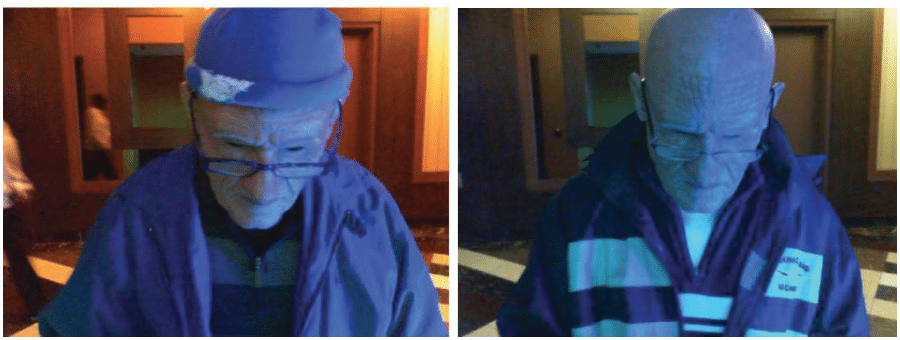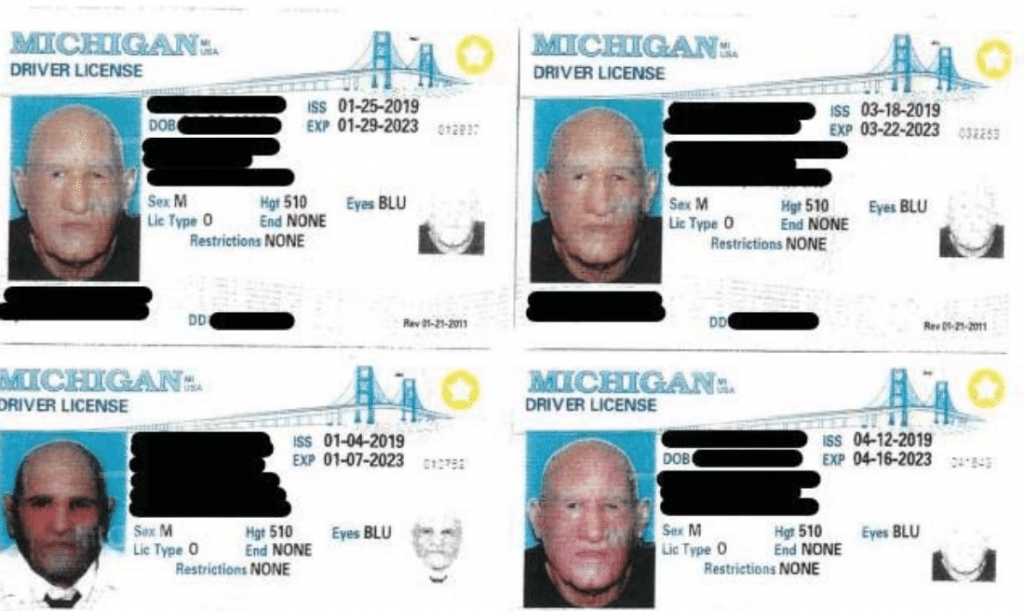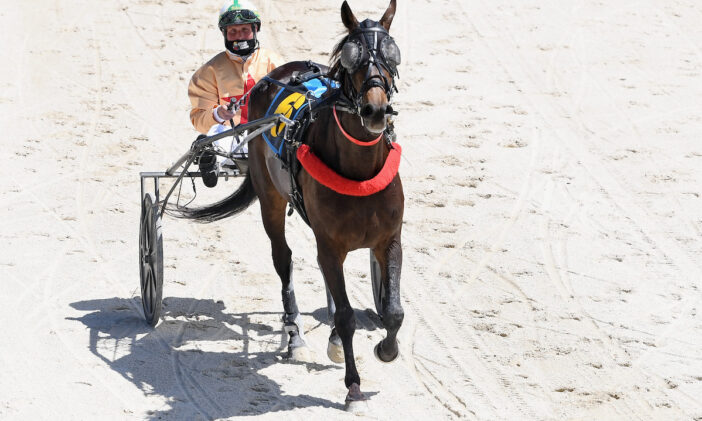It worked for secret agent Ethan Hunt in Mission: Impossible, and for at least a month in 2019, disguising himself in prosthetic masks worked for a 55-year-old Michigan man accused of stealing $98,840 from at least 10 customers at the MGM Grand Detroit.
According to a 17-page criminal complaint and affidavit unsealed last Thursday in Detroit federal court, John Christopher Colletti used doctored driver’s licenses and stolen personal information to steal his victims’ identities, then donned various prosthetic masks, hats, glasses, surgical masks, and a mobility walker to impersonate an elderly man while withdrawing more than $100,000 from electronic kiosks at casinos in Detroit and Kansas.
On the afternoon of May 23, 2019, it took Colletti just 26 minutes to make 15 cash withdrawals — each worth $2,000, for a total of $30,000 from kiosks at MGM Grand Detroit, according to the affidavit, signed by FBI Special Agent Julia MacBeth. “Colletti made multiple withdrawals from various [kiosks] at different locations on the MGM gaming floor in apparent attempts to evade the casino’s reporting requirements for withdrawing large amounts of cash at one time,” the affadavit reads.

Colletti was arrested March 12 by the Prairie Band Potawatomi Tribal Police, after he had withdrawn more than $20,000 from kiosks at the Prairie Band Casino and Resort in Mayetta, Kan., according to the FBI investigation. Colletti is being held, without bond, in Kansas, until he can be extradited to Detroit, where he is expected to face federal charges including wire fraud and aggravated identity theft.
Colletti’s alleged scheme
According to the FBI, Colletti targeted gamblers who belonged to a VIP Preferred program managed by Global Payments Gaming Services, a company that partners with casinos to install kiosks that offer enrollees a slate of financial services promising faster access to cash and higher, rolling limits. The program is available in more than 500 casinos throughout North America, including four Michigan casinos — MGM Grand, MotorCity, and Greektown in Detroit, plus the Firekeepers Casino Hotel in Battle Creek.
Before making the fraudulent withdrawals, the affidavit alleges, Colletti would purchase the personal information of VIP Preferred members from online databases, then use the stolen identities to have counterfeit Michigan driver’s licenses made. The licenses contained the real names, addresses, and dates of birth of state residents, but featured photographs of an individual wearing a prosthetic mask to appear like an elderly man.

Armed with the bogus driver’s licenses, slips of paper containing the victims’ Social Security and phone numbers to bypass the VIP Preferred member verification process, and his array of disguises, Colletti would use the kiosks’ e-check service to make unauthorized withdrawals from others’ bank accounts, according to the affidavit.
On the day in May 2019 when Colletti entered the MGM Grand Detroit and stole $30,000 from one VIP Preferred member, the affidavit says security cameras showed Colletti leaving the casino via taxi and then being dropped off in the Greektown neighborhood. There, he stepped inside the Pegasus Taverna restaurant, used the eatery’s bathroom to change out of his disguise, and emerged 10 minutes later in street clothes before departing in another cab.
Capture in Kansas
This March, when Colletti allegedly attempted to revive his scheme in Kansas, he almost pulled it off.
He entered the Prairie Band Casino on March 12, disguised as an old man and using a walker as a prop, according to the affidavit. After withdrawing more than $20,000 from kiosks on the casino floor, Colletti was approached by security and asked to provide his Social Security number at the cashier’s cage for reporting purposes. Colletti first went to the restroom, where he changed out of his costume. “Colletti then exited the casino with a noticeable bulge down the front of his pants, believed to be the prosthetic face mask,” the document reads.
Later that day, Colletti was apprehended by officers of the Prairie Band Potawatomi Tribal Police, who reported the crimes to the FBI. Meanwhile, investigators working for Global Payments informed the tribal police of similarities between Colletti’s activity at Prairie Band and the previous year’s reports of identity theft in Detroit, and the tribal police relayed the information to the Michigan State Police, according to the affidavit.
Subsequent searches of Colletti’s rental car and a Detroit storage unit linked to Colletti turned up mannequin heads for prosthetic face masks, USB flash drives, computer tablets, more than 250 receipts from Global Payments kiosks at the MGM Grand Detroit, and empty paint cans containing 83 driver’s licenses, 14 insurance cards in various names, six open-water diver certification cards, how-to books on getting away with crime, and a Social Security card under the alias “Michael Harris,” the FBI said. The USB drives were found to contain spreadsheets listing the names, dates of birth, Social Security numbers, phone numbers, addresses, places of work, bank routing numbers, bank account numbers, and monthly salaries of more than 1,000 individuals.
“There were also orders,” the affidavit reads, “of orders Colletti placed with as-yet-unidentified individuals, in which Colletti attempted to order the victims’ Social Security numbers.”





